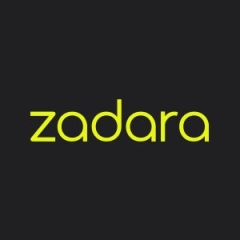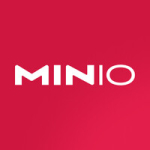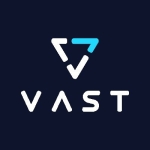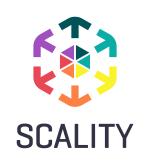What is our primary use case?
We are running Zadara in three of our data centers.
We're a data protection organization so we back up a lot of customer's data. We use Zadara largely in one of three ways. This first is an Object storage platform in our data centers, the second is for Block storage, for a specific product that we have, and the third is for on-premise customer object storage. In the third case, when we're backing up a large amount of data from a customer's site, we put a local Zadara appliance on that customer's site as well.
How has it helped my organization?
Our initial application was probably the simplest one. We were sunsetting a product, but we needed to do some movement and we needed some additional storage, but we knew that what we needed was going to change within six months as we got rid of one product and brought in another. To handle this, we started deploying Block storage with Zadara, which we then changed to Object storage and effectively sent back the drives related to the Block storage as we did that migration. This meant that we did not have to invest in new technology or different platforms but rather, we could do it all on one platform and we can manage that migration very easily.
We use Zadara for most of our storage and it provides us with a single-tenant experience. We have a lot more customer environments running on it and although we don't use the compute services at the moment, we do use it for multi-tenant deployment for all of our storage.
I appreciate that they also offer compute services. Although we don't use it at the moment, it is something that we're looking at.
The fact that Zadara provides drive options such as SSD, NL-SAS, and SSD Cache is really useful for us. Much like in the way we can offer different deployments to our customers, having different drive sizes and different drive types means that we can mix and match, depending on customer requirements at the time they come in.
With available protocols including NFS, CIFS, and iSCSI, Zadara supports all of the main things that you'd want to support.
In terms of integration, Zadara supports all of the public and private clouds that we need it to. I'm not sure if it supports all of them on the market, but it works for everything that we require. This is something that is important to us because of the flexibility we have in that regardless of whether our customers are on-premises, in AWS, or otherwise, we can use Zadara storage to support that.
I would characterize Zadara's solution as elastic in all directions. There clearly are some limits to what technology can do, but from Zadara's perspective, it's very good.
With respect to performance, it was not a major factor for us so I don't know whether Zadara improved it or not. Flexibility around capacity is really the key aspect for us.
Zadara has not actually helped us to reduce our data center footprint but that's because we're adding a lot more customers. Instead, we are growing. It has helped us to redeploy people to more strategic projects. This is not so true with the budget, since it was factored in, but we do focus on more strategic projects.
What is most valuable?
The most valuable feature is the flexibility in terms of deployment options. For example, we typically use Block and Object storage types, but we've also used File storage in the past as well. It also gives you the ability to turn on different features, easily.
There's a simple cost model for everything. It's not like some more traditional storage vendors where we need to go and buy more hardware or pay for three years worth of software licensing, et cetera. We pay for what we use for the month we use it.
What needs improvement?
Some of the features are a little bit slow to come to market. For example, we've been talking about Object replication for some time, and it's now nearly available. I wouldn't really say that anything is in need of improvement, although it would be good if they could speed up development on some things.
Buyer's Guide
Zadara
December 2025
Learn what your peers think about Zadara. Get advice and tips from experienced pros sharing their opinions. Updated: December 2025.
879,371 professionals have used our research since 2012.
For how long have I used the solution?
We have been using Zadara Storage Cloud for approximately two years.
What do I think about the stability of the solution?
This acts as our primary object storage, so it is used pretty extensively. Stability-wise, we've not had any particular issues. We've had a few drive failures and other things that you would expect, but overall, no stability issues.
What do I think about the scalability of the solution?
We have six people that work with Zadara directly. Our engineering team uses it for product development, our head of infrastructure runs the data center, and the infrastructure team works with it regularly.
How are customer service and support?
We're an organization that runs 24/7, so the fact that Zadara comes with 24/7 management is hugely beneficial to us. Particularly on the customer deployments, the fact that we don't have to worry about those environments, where traditionally we'd have to look after them, means that we can focus on running our core backup technology rather than worrying about the underlying storage.
Overall, the support has been very good, both during our initial deployment and post-deployment. We've had no issues that they were not able to resolve and we have no problems with them whatsoever. Our account team is based in the UK and the support team is in the US.
Which solution did I use previously and why did I switch?
Prior to Zadara, we were using NetApp. We replaced it because it was very old, out of support, and Zadara gave us the ability to not invest in hardware that we weren't going to need.
How was the initial setup?
The initial setup was straightforward and the deployment didn't take very long.
What about the implementation team?
Zadara largely took care of the deployment for us, so we didn't have to do anything. Our operations team coordinated the process with them.
When it first came in, we had it for one specific use case that was very easy. For that, we knew exactly how we were deploying it and it's evolved over time.
What was our ROI?
We have seen a return on our investment with Zadara storage, and it's because it has enabled us to deliver almost limitless capacity. As our business grows, we haven't had to have issues with forklift upgrades of storage, et cetera. It's enabled a very linear growth within our team and has meant that we haven't had to add any resources to the support team from our side to deal with that growth.
What's my experience with pricing, setup cost, and licensing?
The pricing and licensing are very simple and the cost is predictable, although, like everything that you pay for as you use, you have to be mindful of what you're using. Much like the public cloud, if you leave stuff on there that you don't need, then the bill continues to grow. Outside of that, which isn't specific to Zadara, it is very good, very easy, and we have no concerns whatsoever.
Using Zadara has saved us CapEx and large upfront expenditure.
Which other solutions did I evaluate?
I had used Zadara for a number of years in a previous organization, so I knew what they were and we brought them off of the back of that.
What other advice do I have?
In summary, I think that this is an absolutely great product. It provides that mix of use and it also helps in these uncertain times, where if your capacity drops or, as in our case, it increases, then it has the ability to flex and scale with you.
I would rate this solution a nine out of ten.
Disclosure: PeerSpot contacted the reviewer to collect the review and to validate authenticity. The reviewer was referred by the vendor, but the review is not subject to editing or approval by the vendor.

















